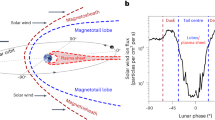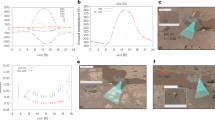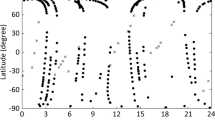Abstract
PROF. JAEGER is quite right in pointing out that I have used a high figure for the radioactivity of the Moon, and also that my value for conductivity near the surface is lower than the mean value calculated from observations. This does not necessarily prove that my values are wrong. I assume Kozyrev's observations of hot gases to be reliable. They would not have been expected on the basis of conventional views of lunar characteristics and presumably, therefore, conventional views must be modified. I have suggested some modifications, which may easily be wrong. The more conservative of Prof. Jaeger's figures, however, must almost necessarily be wrong. They show that phenomena observed by Kozyrev could not have occurred.
This is a preview of subscription content, access via your institution
Access options
Subscribe to this journal
Receive 51 print issues and online access
$199.00 per year
only $3.90 per issue
Buy this article
- Purchase on Springer Link
- Instant access to full article PDF
Prices may be subject to local taxes which are calculated during checkout
Similar content being viewed by others
Author information
Authors and Affiliations
Rights and permissions
About this article
Cite this article
FREMLIN, J. Sub-surface Temperatures on the Moon. Nature 183, 1317–1318 (1959). https://doi.org/10.1038/1831317a0
Issue Date:
DOI: https://doi.org/10.1038/1831317a0
Comments
By submitting a comment you agree to abide by our Terms and Community Guidelines. If you find something abusive or that does not comply with our terms or guidelines please flag it as inappropriate.



